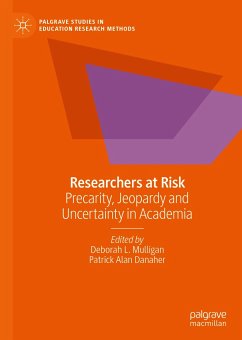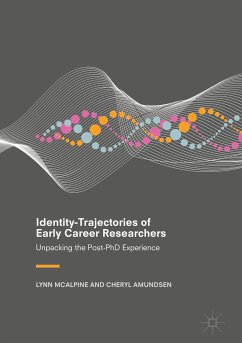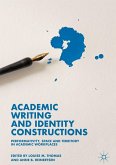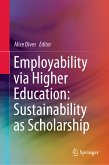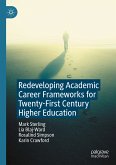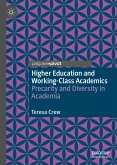This book explores the phenomenon of researchers at risk: that is, the experiences of scholars whose research topics require them to engage with diverse kind of dangers, uncertainties or vulnerabilities. This risk may derive from working with variously marginalised individuals or groups, or from being members of such groups themselves. At other times, the risk relates to particular economic or environmental conditions, or political forces influencing the specific research fields in which they operate. This book argues for the need to reconceptualise - and thereby to reimagine - the phenomenon of researchers' risks, particularly when those risks are perceived to affect, and even to threaten the researchers. Drawing on a diverse and global range case studies including Aotearoa New Zealand, Australia, Baluchistan, Cyprus, and Germany, the chapters call for the need to identify effective strategies for engaging proactively with these risks to address precarity, jeopardy and uncertainty.
Deborah L. Mulligan researches in the field of gerontology, specifically with older men and suicide ideation. She is interested in community capacity building through examining the sustainability of particular men's groups with male-only membership, and also in ethics and reciprocity when conducting research with marginalised groups.
Patrick Alan Danaher is Professor of Educational Research and Acting Deputy Head of the School of Education at the University of Southern Queensland, Australia. He is also currently an Adjunct Professor in the School of Education and the Arts at Central Queensland University, Australia. He is also currently an Adjunct Professor at Central Queensland University and James Cook University, both in Australia, and Docent at the University of Helsinki, Finland.
Dieser Download kann aus rechtlichen Gründen nur mit Rechnungsadresse in A, B, BG, CY, CZ, D, DK, EW, E, FIN, F, GR, HR, H, IRL, I, LT, L, LR, M, NL, PL, P, R, S, SLO, SK ausgeliefert werden.
"The volume provides researchers with a wealth of insights into the challenges and risks they may face and offers strategies to manage or mitigate them. ... this will spark further discussion on the challenges researchers confront, prompting broader debate in academic institutions about addressing these risks' root causes rather than merely managing them individually." (Aysuda Kölemen, IQAS, International Quarterly for Asian Studies, Vol. 54 (4), 2023)
Es gelten unsere Allgemeinen Geschäftsbedingungen: www.buecher.de/agb
Impressum
www.buecher.de ist ein Internetauftritt der buecher.de internetstores GmbH
Geschäftsführung: Monica Sawhney | Roland Kölbl | Günter Hilger
Sitz der Gesellschaft: Batheyer Straße 115 - 117, 58099 Hagen
Postanschrift: Bürgermeister-Wegele-Str. 12, 86167 Augsburg
Amtsgericht Hagen HRB 13257
Steuernummer: 321/5800/1497
USt-IdNr: DE450055826
Bitte wählen Sie Ihr Anliegen aus.
Rechnungen
Retourenschein anfordern
Bestellstatus
Storno

